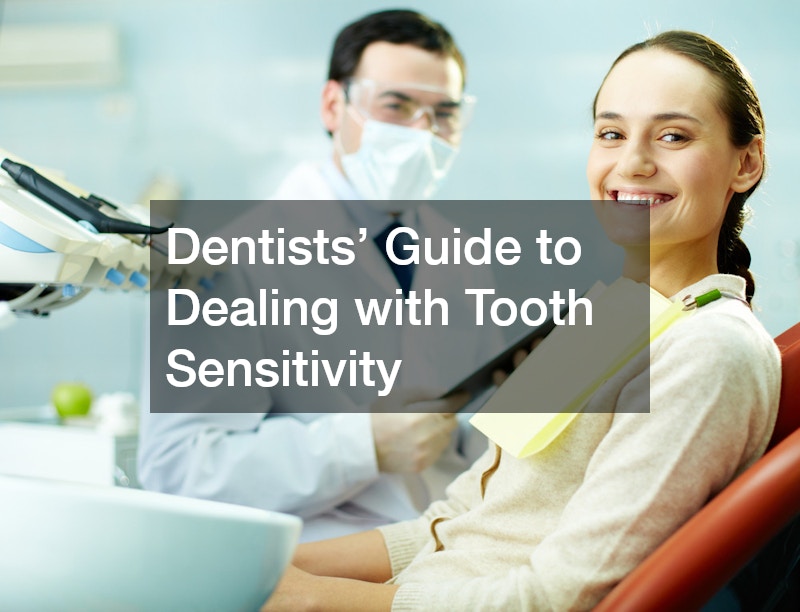
Addressing tooth sensitivity is not merely about alleviating discomfort; it's about preserving oral health. When teeth become sensitive, it often signals enamel erosion or gum recession, both of which can lead to more severe dental problems if not addressed. Therefore, this guide aims to provide a comprehensive understanding of tooth sensitivity, from its causes to prevention and treatment methods. By delving into the various factors that contribute to tooth sensitivity, this article hopes to offer practical advice and empower readers with the knowledge needed to tackle this pervasive issue. With expert insights and actionable strategies, we aim to help you maintain a healthy and pain-free smile.
Video Source
Tooth sensitivity arises primarily due to the exposure of the dentin, which is the underlying layer of the teeth. This can occur due to enamel erosion, which is the protective outer layer of teeth and can result from consuming acidic foods and beverages or aggressive brushing habits. When the enamel wears away, the dentin becomes exposed, leading to increased sensitivity.
Gum recession is another common cause of tooth sensitivity. As gums recede, the tooth roots, which are not protected by enamel, become exposed. This exposure can make teeth more sensitive to temperature changes and pressure. Poor oral hygiene, aggressive brushing, and periodontal diseases can all contribute to receding gums.
Preventing tooth sensitivity starts with proper oral hygiene. Using a soft-bristled toothbrush and fluoridated toothpaste, alongside gentle brushing techniques, can help protect the enamel and reduce the risk of gum recession. Regular dental check-ups for professional cleaning and assessment can also prevent underlying issues from escalating.
Reducing the intake of acidic foods and beverages is another crucial preventive measure. When consuming acidic items, using a straw can help minimize contact with the teeth. Additionally, avoiding excessively hot or cold foods and drinks can prevent irritation to sensitive teeth. Implementing these dietary changes can significantly lower the risk of enamel erosion and dentin exposure.
Treatment for tooth sensitivity may range from simple at-home solutions to more advanced dental procedures. Desensitizing toothpastes are a common initial treatment. These contain compounds that help block the transmission of sensations from the tooth surface to the nerve, providing relief from discomfort.
Fluoride treatments, applied by dentists, can help strengthen enamel and reduce sensitivity. A dentist might also apply a bonding agent to cover exposed dentin and protect sensitive areas. These treatments provide a protective coating to prevent further irritation and discomfort caused by sensitivity triggers.
Tooth sensitivity can often indicate more serious underlying dental issues. Conditions such as tooth decay, cracked teeth, and gum disease can all present with symptoms of sensitivity. It is crucial to address and diagnose these issues early on to prevent further complications and preserve oral health.
In some cases, persistent tooth sensitivity might signify aggressive enamel erosion, which can weaken teeth and lead to more severe dental problems. Regular dental visits are essential for monitoring oral health and identifying issues that could contribute to increased sensitivity. A dentist can provide a thorough examination and recommend appropriate treatments to address the root cause of the sensitivity.
Ignoring persistent tooth sensitivity can escalate into more considerable dental concerns, emphasizing the importance of not dismissing this symptom. By addressing tooth sensitivity as a potential indicator of other problems, individuals can take preventive actions and maintain a healthier oral environment.
If tooth sensitivity persists beyond a few days or significantly impacts daily life, it is advisable to consult with a dentist. Persistent sensitivity may indicate a more serious underlying problem that requires professional evaluation and treatment. Seeking timely dental care can prevent minor issues from evolving into major dental concerns.
In cases where over-the-counter treatments provide little to no relief, a dentist can offer specialized interventions tailored to the individual's specific needs. Regular dental check-ups enable early detection of potential issues, enhancing the chances of successful treatment and resolution of tooth sensitivity. Fact: Seeking prompt professional care not only alleviates discomfort but also safeguards against long-term dental complications.=
Understanding and addressing tooth sensitivity involves recognizing its causes, implementing preventive measures, and seeking appropriate treatments. By being vigilant about oral health and acknowledging the significance of sensitivity as a potential indicator of deeper issues, individuals can effectively manage their condition and maintain a pain-free, healthy mouth.
.